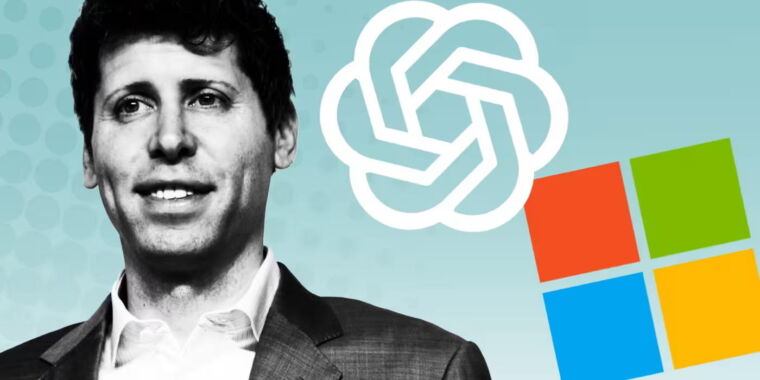As the Chief Executive Officer of ChatGPT creator, Sam Altman is moving ahead with his objective of advancing artificial general intelligence—computer technology that matches human cleverness. OpenAI intends to secure additional financial backing from its primary investor, Microsoft.
In an interview with the Financial Times, Altman mentioned that the partnership with Microsoft’s CEO, Satya Nadella, was progressing positively, expressing his anticipation of garnering more support from the tech giant and other investors to cover the substantial expenses involved in enhancing AI models.
Sources familiar with the discussions revealed that Microsoft injected \(10 billion into OpenAI earlier this year as part of a "multiyear" agreement, valuing the San Francisco-based company at \)29 billion.
Altman responded optimistically when asked about Microsoft’s potential future investments, highlighting the extensive work and assessments required to progress towards Artificial General Intelligence (AGI) while acknowledging the exorbitant costs involved.
Though Altman did not disclose specific financial details, he noted that revenue growth had been robust, yet the company remained unprofitable due to training expenditures. He emphasized the mutually beneficial nature of the Microsoft collaboration, ensuring that both parties reap the rewards of each other’s success.
During an event on November 6 attended by Nadella, OpenAI introduced several innovative tools and enhancements to its latest iteration, GPT-4, catering to developers and businesses. This move signifies the company’s strategic expansion beyond ChatGPT.
The unveiled tools include a GPT Store, akin to an app marketplace, and customized versions of ChatGPT tailored for specific applications. The ultimate objective is to emulate the profit-sharing model of Apple’s App Store with prominent GPT developers.
Altman appointed industry experts like Brad Lightcap, formerly associated with Dropbox and Y Combinator, as the Chief Operating Officer to bolster the company’s organizational structure.
While Altman delves into research on developing superintelligence and enhancing processing capabilities, the primary focus remains on creating AGI, ensuring its security, and maximizing its benefits.
OpenAI’s efforts are geared towards crafting more adept intelligent agents capable of executing various tasks such as scripting, financial transactions, communication, and administrative duties, building upon the foundation laid by GPT models.
The company is actively working on the next iteration, GPT-5, although a release date remains unspecified. Altman hinted at the incorporation of diverse datasets, including publicly available internet data and proprietary corporate information, to enhance training processes.
OpenAI recently issued a call for extensive datasets suitable for training, emphasizing the importance of ample data for refining AI models effectively.
Despite advancements in GPT-5, Altman acknowledged the challenge of predicting the model’s full range of capabilities accurately. He likened the endeavor to an intriguing guessing game, underscoring the significance of anticipating and harnessing the model’s potential effectively.
OpenAI relies on Nvidia’s cutting-edge H100 chips for model training, navigating through supply constraints to secure essential components. Altman expressed optimism regarding improved availability in the upcoming year, despite emerging competition from tech giants like Google, Microsoft, AMD, and Intel in the AI hardware domain.
With ChatGPT’s successful launch a year ago, OpenAI has emerged as a frontrunner in conceptual AI development, focusing on creating systems capable of generating diverse content instantly.
Altman reiterated the company’s commitment to advancing artificial general intelligence, emphasizing the foundational role of large vocabulary models like ChatGPT in the broader quest for AGI development.
While OpenAI primarily focuses on Large Language Models (LLMs), Altman highlighted the importance of speech in condensing information and fostering intelligence, a facet he believes some competitors have overlooked.
Altman underscored the critical need for advancements in understanding to propel AI systems forward, emphasizing the necessity of addressing the key missing element in the AGI development race.
In conclusion, Altman emphasized the vital quest for uncovering the missing piece essential for propelling humanity towards new realms of knowledge and understanding—an endeavor that remains pivotal for OpenAI’s future endeavors.






